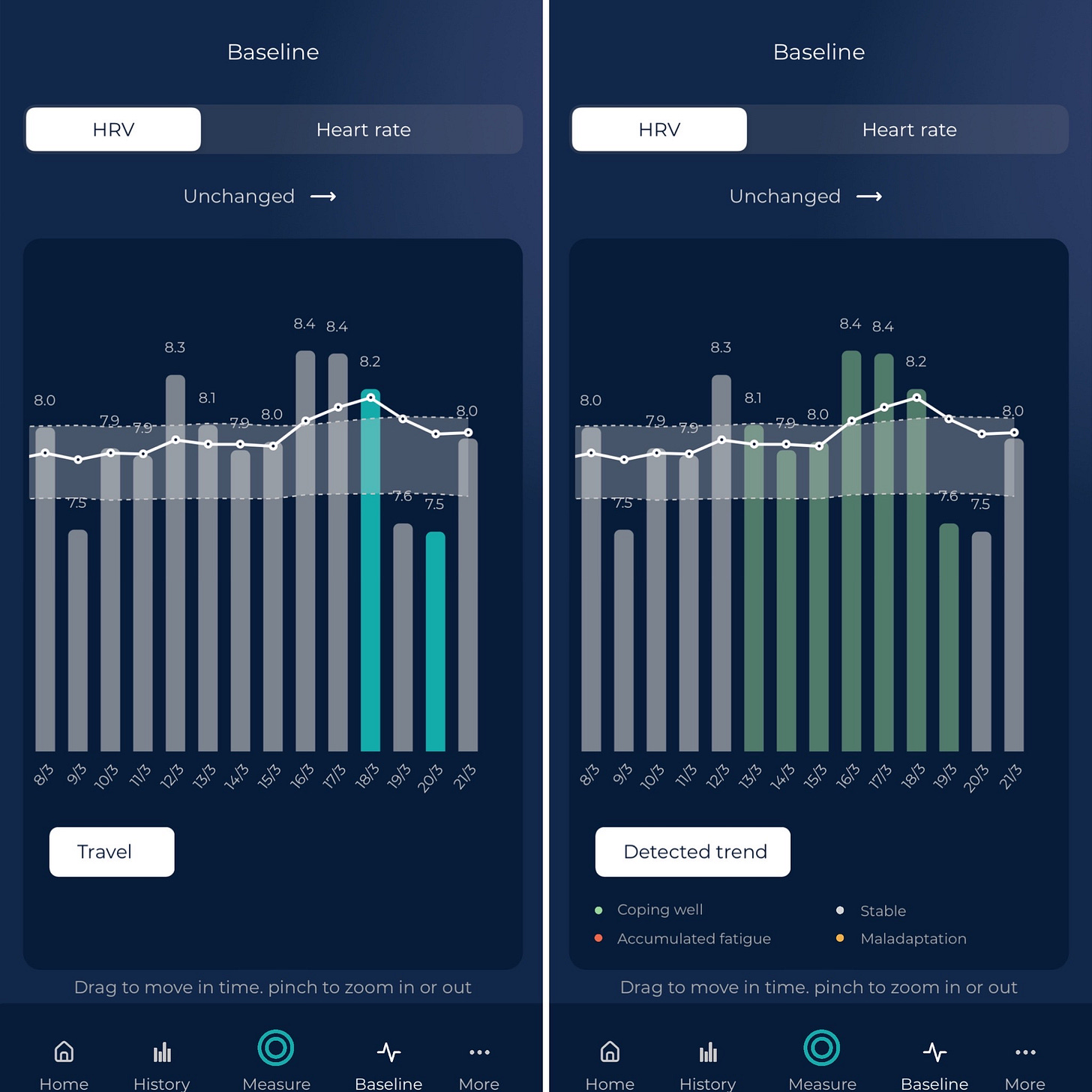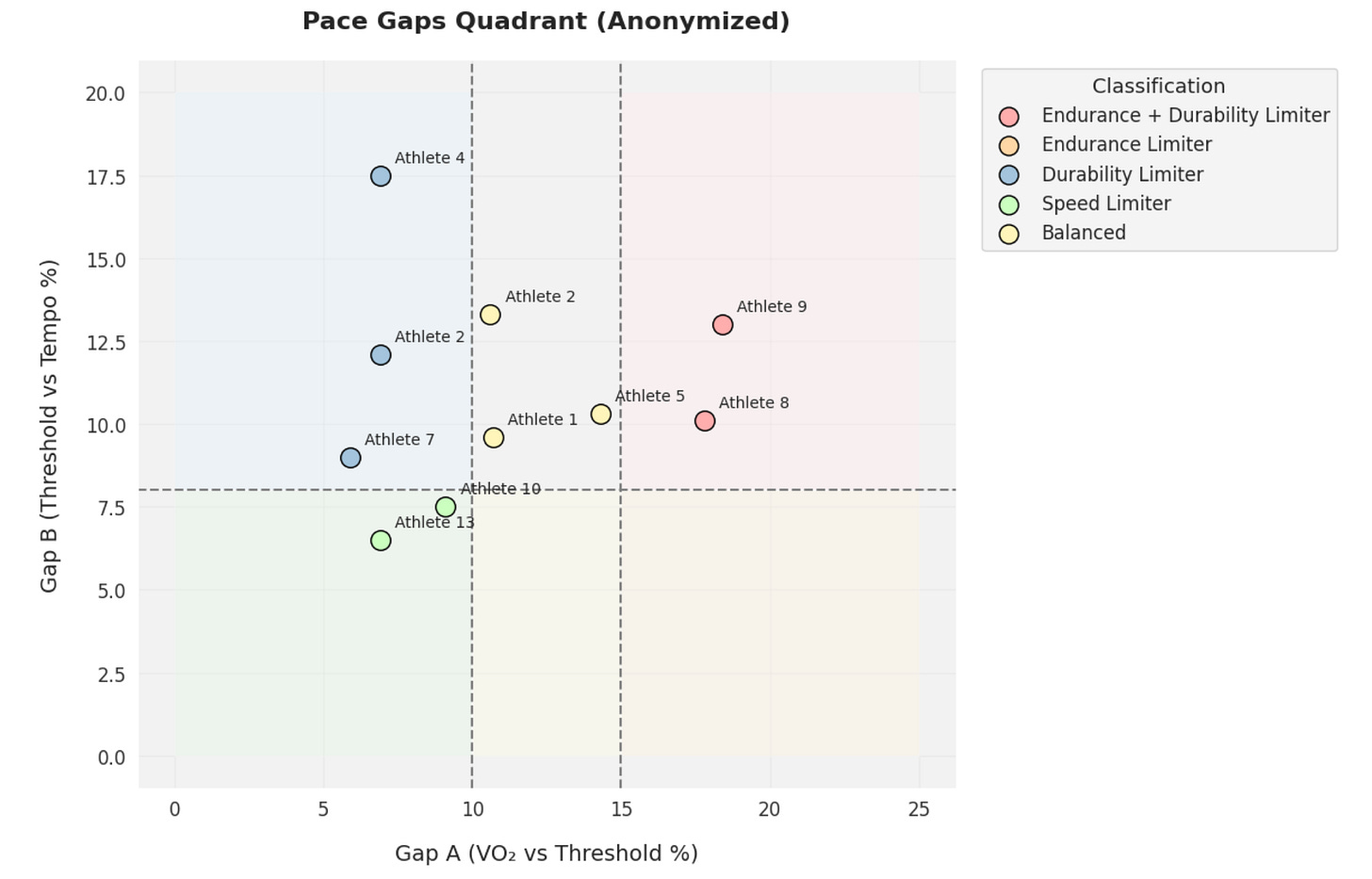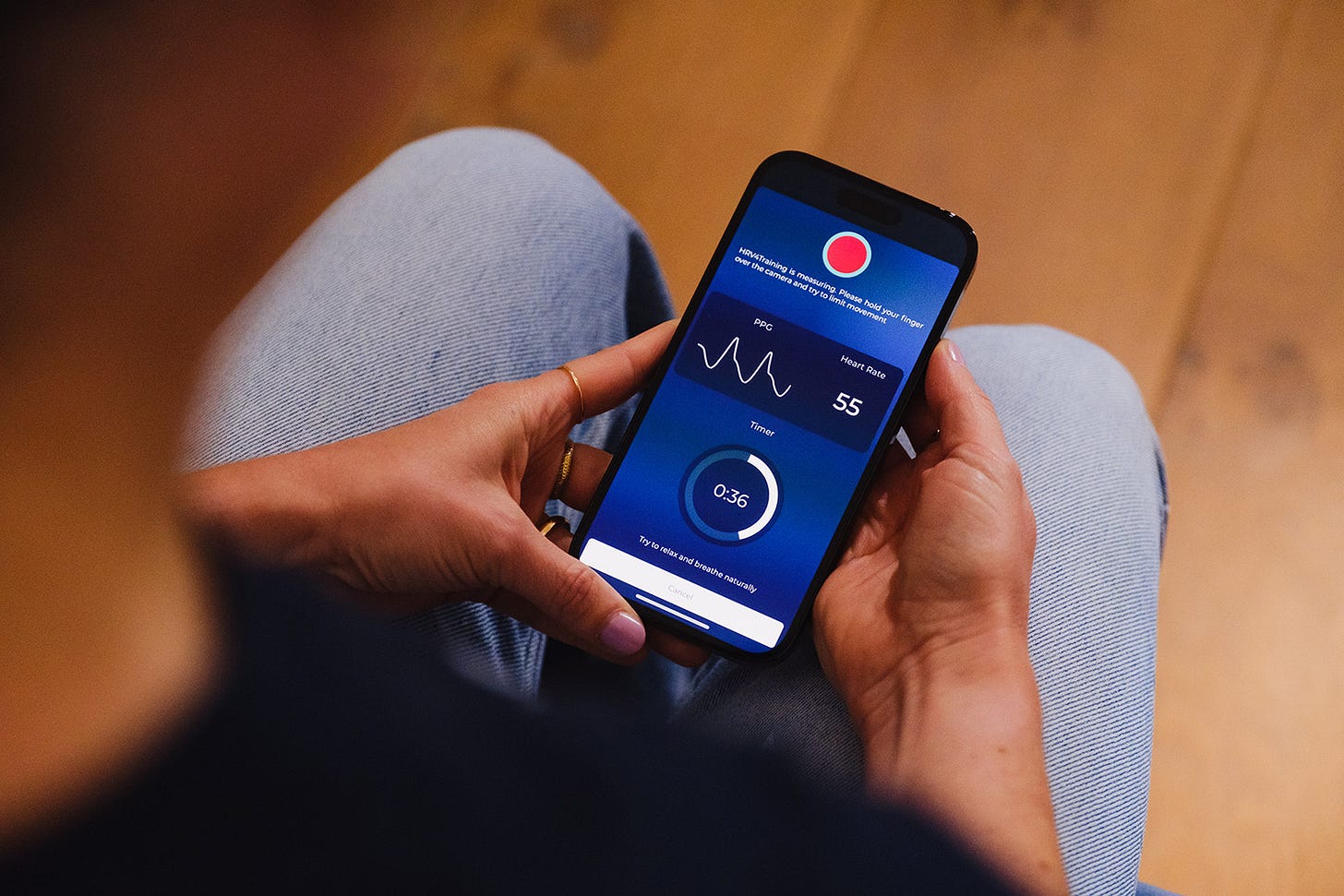Week 34: The Myth of Continuous Stress Monitoring
And other made-up scores.
Hi there 👋
I hope you are doing well.
A recent study, led by Eiko Fried, put the application of HRV-based continuous stress monitoring as proposed by wearables to the test, and found that the correlation between wearable data and self-reported stress scores was “basically zero” (in the author’s words, according to The Guardian).
Continuous stress monitoring was the nail in the coffin for me when it comes to wearables, as the misuse of HRV data for this application was something I couldn’t get behind.
When assessing in detail 1) the physiology of what we are measuring with HRV 2) the technology used 3) the interpretability of the data, it is clear that there is no such thing as continuous stress monitoring using HRV, and these applications are a wild extrapolation merely serving user engagement.
This is something I discussed in detail here, in case you’ve missed it and would like to learn more.
In another recent study researchers looked at self-reported stress measures (collected via a validated questionnaire, similarly to the study discussed above), in relation to physiological measurements (e.g. resting heart rate and HRV measured during the night, not continuously) and made-up scores (the recovery score provided by a wearable).
As night data provides a good assessment of an individual’s resting physiology and stress response - albeit not as good as a morning measurement (see here) - a negative correlation between self-reported stress measures and HRV was reported, i.e., the higher the stress, the lower the night HRV.
Similarly, we had a positive correlation between resting heart rate and HRV; hence, the higher the stress, the higher the resting heart rate. The relationship between HRV and stress was also somewhat stronger than the relationship between heart rate and stress, highlighting once again how HRV is probably a more sensitive marker of stress, something I cover in detail in my breakdown of the differences between heart rate and HRV, which you can find here.
Where am I going with this?
The study also reports that there was zero correlation between the made-up recovery score of the wearable and all other variables.
I receive quite a few emails from people concerned with their ‘stress monitors’ and made-up scores (readiness, recovery, etc.) - and yet none of these parameters are good at tracking what they claim to be tracking.
Keep that in mind before you invest your mental energies and trigger additional worries and concerns for you or your athletes because of made-up data with no physiological meaning.
There is a use for HRV data, but that use is not continuous stress monitoring (quite the opposite!) or building made-up metrics that pretend to capture our overall state.
Cheers!
Personal Coaching for Runners
If you are interested in working with me, please learn more here, and fill in the athlete intake form, here.
Thank you for your interest.
Discount for HRV4Training Pro: 20% off 🖥️
HRV4Training Pro is the ultimate platform to help you analyze and interpret your physiological data, for individuals and teams.
You can find a guide and overview here.
Try HRV4Training Pro for free at HRVTraining.web.app or use promo code SCIENCE for 20% off.
While we really appreciate the pledges on Substack, our writing here will always remain free, and Pro is the best way to support our work.
Thank you again for your support and for allowing us to remain independent.
When using Pro, the app will also automatically recognize your account and add the Normal Range to the Baseline view, together with detected trends and additional annotations, which can help contextualizing longer-term changes.
You will also be able to pick rMSSD as the parameter to see on the homepage of the app.

See you next week!
Marco holds a PhD cum laude in applied machine learning, a M.Sc. cum laude in computer science engineering, and a M.Sc. cum laude in human movement sciences and high-performance coaching. He is a certified Ultrarunning Coach.
Marco has published more than 50 papers and patents at the intersection between physiology, health, technology, and human performance.
He is co-founder of HRV4Training, Endurance Coach at Destination Unknown, advisor at Oura, guest lecturer at VU Amsterdam, and editor for IEEE Pervasive Computing Magazine. He loves running.
Social:
Personal Substack
Instagram







Thank you Marco for another objective and interesting read.